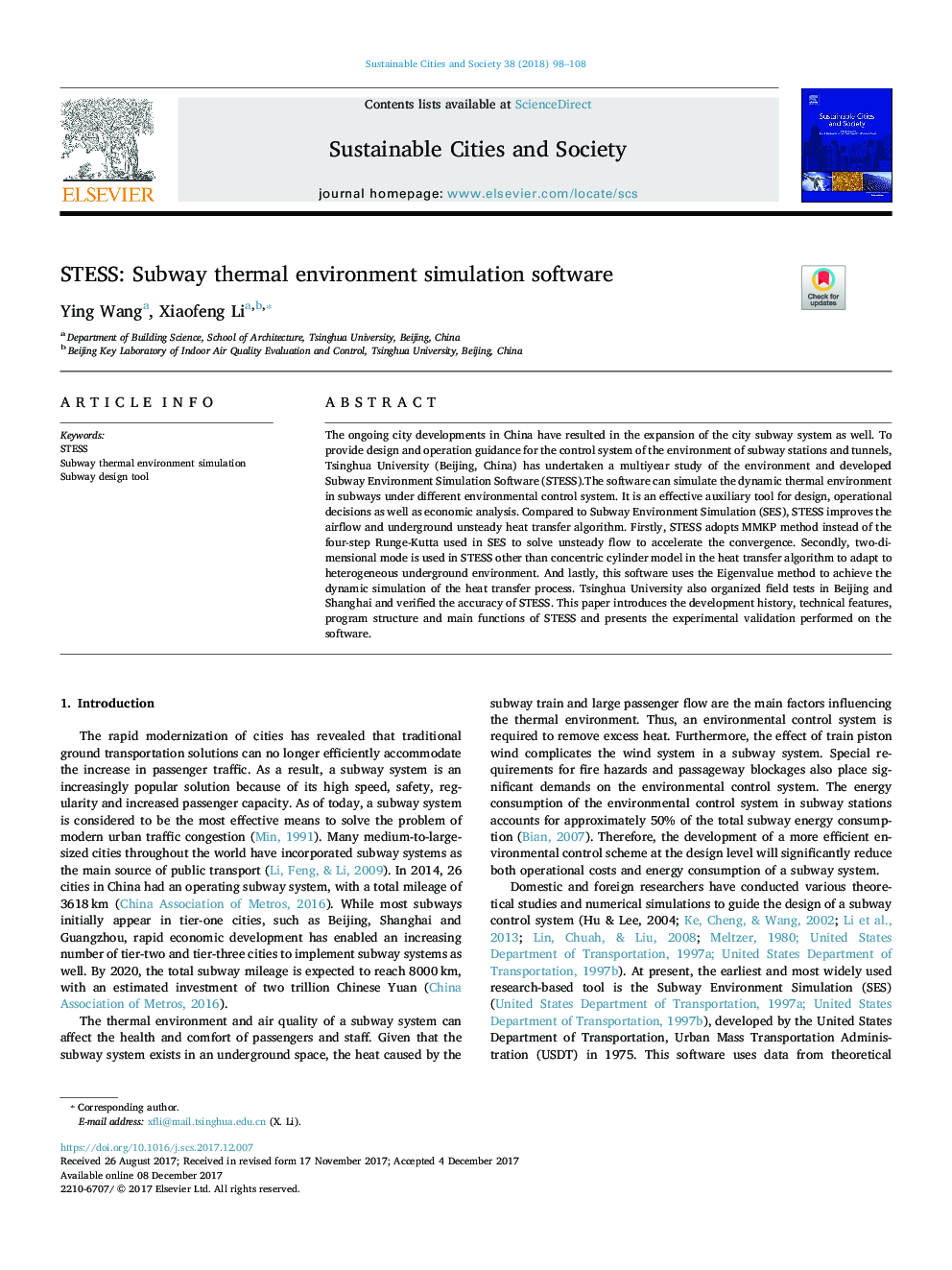| کد مقاله | کد نشریه | سال انتشار | مقاله انگلیسی | نسخه تمام متن |
|---|---|---|---|---|
| 6775311 | 1432010 | 2018 | 11 صفحه PDF | دانلود رایگان |
عنوان انگلیسی مقاله ISI
STESS: Subway thermal environment simulation software
دانلود مقاله + سفارش ترجمه
دانلود مقاله ISI انگلیسی
رایگان برای ایرانیان
کلمات کلیدی
موضوعات مرتبط
مهندسی و علوم پایه
مهندسی انرژی
انرژی های تجدید پذیر، توسعه پایدار و محیط زیست
پیش نمایش صفحه اول مقاله

چکیده انگلیسی
The ongoing city developments in China have resulted in the expansion of the city subway system as well. To provide design and operation guidance for the control system of the environment of subway stations and tunnels, Tsinghua University (Beijing, China) has undertaken a multiyear study of the environment and developed Subway Environment Simulation Software (STESS).The software can simulate the dynamic thermal environment in subways under different environmental control system. It is an effective auxiliary tool for design, operational decisions as well as economic analysis. Compared to Subway Environment Simulation (SES), STESS improves the airflow and underground unsteady heat transfer algorithm. Firstly, STESS adopts MMKP method instead of the four-step Runge-Kutta used in SES to solve unsteady flow to accelerate the convergence. Secondly, two-dimensional mode is used in STESS other than concentric cylinder model in the heat transfer algorithm to adapt to heterogeneous underground environment. And lastly, this software uses the Eigenvalue method to achieve the dynamic simulation of the heat transfer process. Tsinghua University also organized field tests in Beijing and Shanghai and verified the accuracy of STESS. This paper introduces the development history, technical features, program structure and main functions of STESS and presents the experimental validation performed on the software.
ناشر
Database: Elsevier - ScienceDirect (ساینس دایرکت)
Journal: Sustainable Cities and Society - Volume 38, April 2018, Pages 98-108
Journal: Sustainable Cities and Society - Volume 38, April 2018, Pages 98-108
نویسندگان
Ying Wang, Xiaofeng Li,